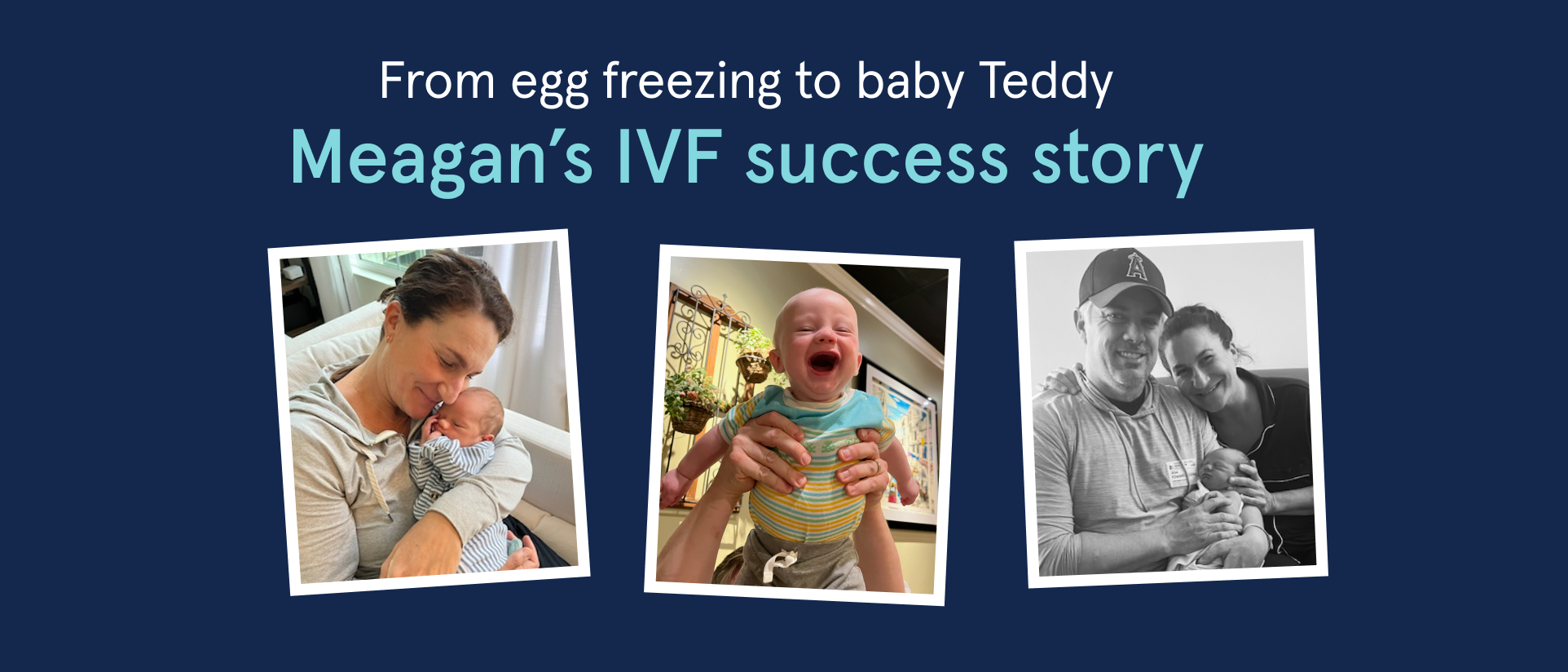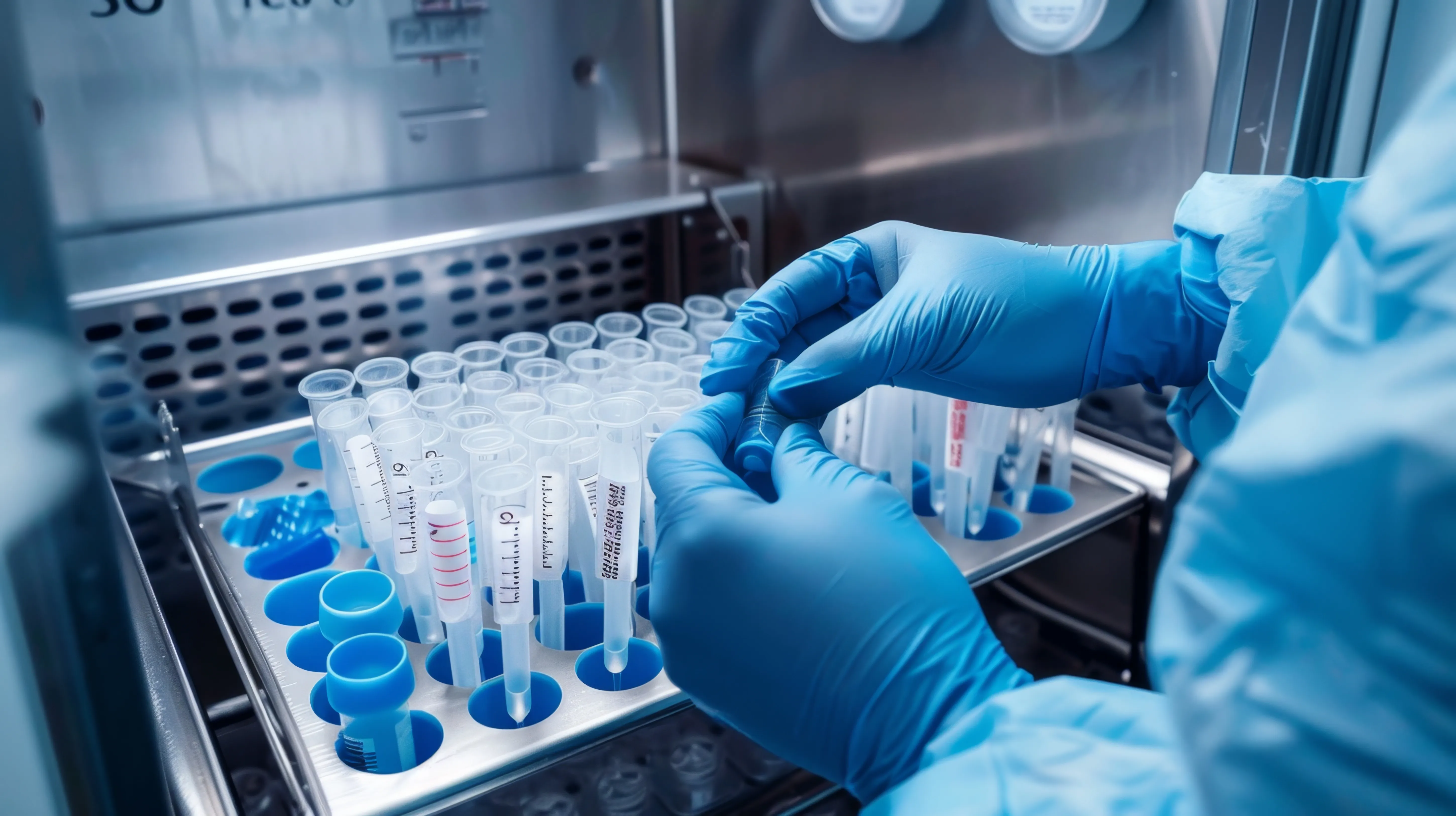
Should I freeze my eggs or embryos?
When a new patient walks through our doors, it isn’t always with the goal of trying to conceive right now. Many aspiring parents come to us to improve their chances of having children in the future.
If this sounds like you, egg or embryo freezing is one step you can take towards improving your chances of conception when you’re ready.
In this article, we’ll walk through everything you need to know about egg vs embryo freezing, including the difference between egg and embryo freezing, the egg retrieval process and how to prepare for it, and how age impacts conception.
Let’s jump in.
What is egg vs embryo freezing?
Egg and embryo freezing are both ways of collecting and storing our gametes so that they can be later used to initiate a pregnancy.
Both start out with an egg retrieval process, where eggs are collected from the ovaries. In the case of egg freezing, mature eggs are frozen. They are later thawed and then fertilized before being implanted into the uterus of the person who is aiming to become pregnant. With embryo freezing, the mature egg is fertilized using sperm from a partner or sperm donor, and then frozen. When it’s time for implantation, the embryo is thawed and then transferred.
The main difference between egg and embryo freezing is whether the egg gets fertilized now, or later. Egg freezing is the best option for people who don’t have a partner or sperm donor. Some of our patients are partnered with someone they are unsure they want to have kids with, so they opt for egg freezing.
Embryo freezing is a good choice for people who are partnered with the person they would like to conceive with, and/or are using donor sperm to conceive.
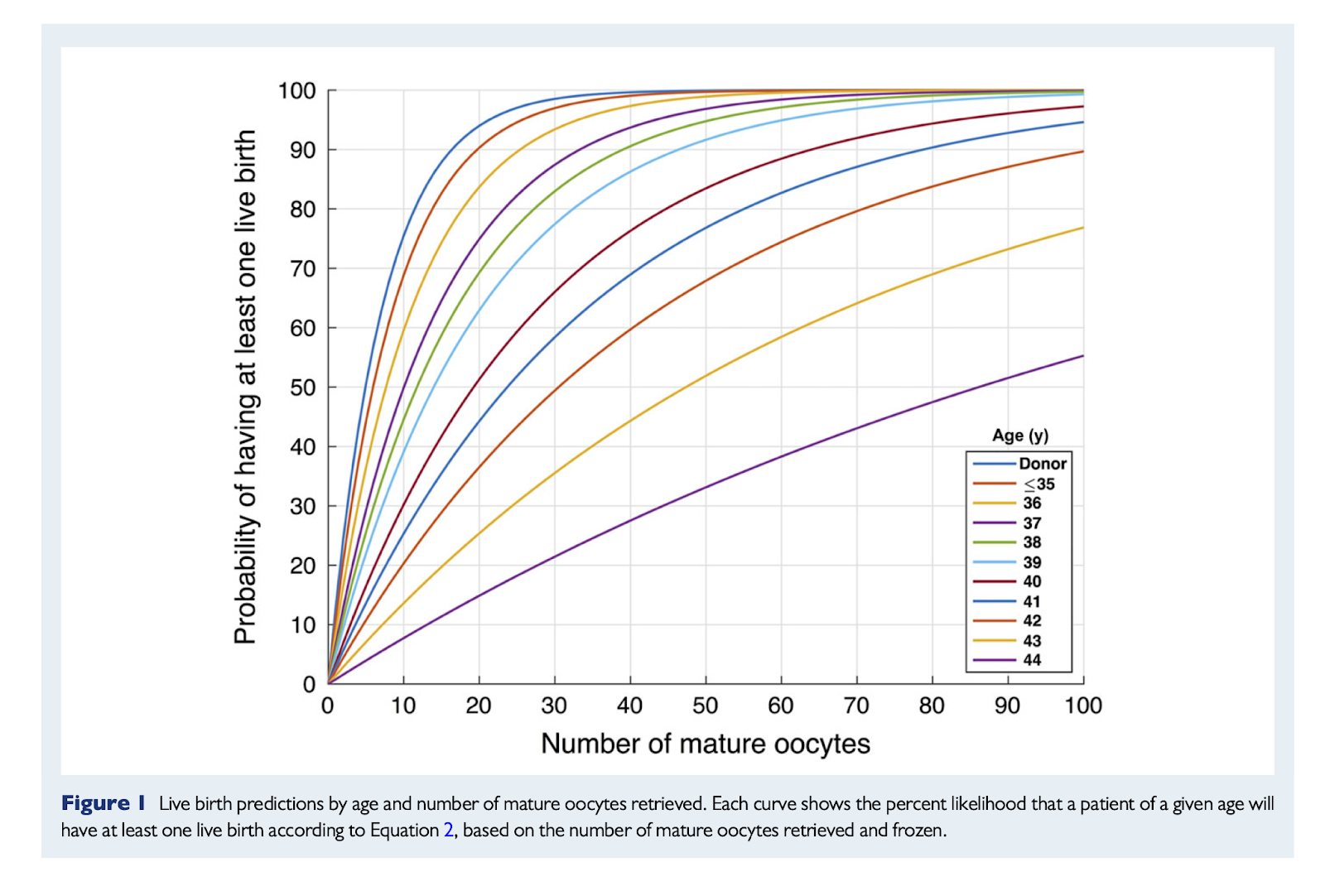
With advances in technology and improved methods for freezing, also known as vitrification, both eggs and embryos have an excellent survival rate and ability to become a live birth. The advantage of embryo freezing is the ability to determine genetic makeup through preimplantation genetic testing (PGT).
A normal or “euploid” embryo, which is an embryo with 46 chromosomes, has about a 65% chance of live birth.
When it comes to egg freezing, we can estimate the probability of having at least one live birth using the age of the person providing the egg, and the number of mature eggs that are frozen. At our fertility clinic in Walnut Creek, we use a calculator designed by researchers at Brigham and Women to estimate your chances of achieving a live birth with your frozen eggs.
Here are some points you should consider when deciding between egg freezing and embryo freezing:
- Embryo freezing is only an option if you have a partner or a sperm donor.
- Even if you are currently partnered, you can still choose to freeze your eggs instead of embryos.
- You can also opt for both options, where you freeze some eggs and some embryos.
What is the recommended age range when you should freeze your eggs?
Based on physiology, you’re born with all of the eggs you’re ever going to have. With age, those eggs decline in both quality and quantity, particularly after age 35.
If you are single and have no plans to conceive, we recommend that you consider egg freezing before age 35. At 35 and up, we recommend egg freezing as soon as you’re able. At our practice, we check AMH and antral follicle count to assess your ovarian reserve and tailor an individualized treatment plan for you. Everyone’s situation is unique and we recommend coming in for a consultation to see what’s best for you. Schedule a consultation with us today.
This chart shows how egg health changes over time.
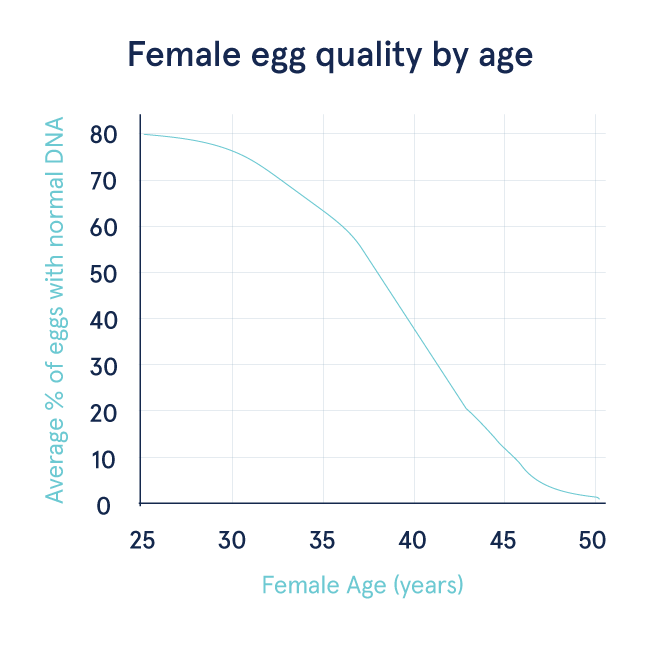
Know that this is not a hard and fast rule. We work with every patient on an individualized basis to land on a care plan that best fits their needs.
We’ve had patients seek egg and embryo freezing outside of these guidelines for reasons including:
- Preservation of fertility before cancer treatment
- A family history of early menopause or loss of fertility
How to prepare for egg freezing
If you’ve decided that egg freezing is the right choice for you, there are a few steps to complete before the retrieval process.
Here are the steps you’ll take as a patient at our Bay Area clinic in Walnut Creek:
- Initial Consultation: You’ll have an Initial consultation with our founder and medical director, Dr. Thalia R. Segal, where she’ll walk you through the process, discuss expected outcomes based on age, and perform an ultrasound to check the uterus and ovaries, and perform an egg count.
- Blood Work: Either on the same day, or on a return visit, we’ll do bloodwork to check a few things including AMH (anti-mullerian hormone) levels which predicts your ovarian reserve, blood type, blood count, infectious disease labs, and thyroid function.
- Financial Counseling: Our financial counselor will meet with you to discuss a payment plan for treatment.
- Final Prep: In your last appointment before starting treatment, our IVF nurse will order the medication needed for retrieval and create a calendar for your injection and retrieval process.
If you opt for embryo freezing, there are a couple of extra steps including a semen analysis and genetic carrier screening.
To prepare for the start of the injection process and retrieval, there are a few steps you should take in order to promote successful treatment:
- Prenatal Supplement: You’ll take a daily supplement that contains at least 1000 mcg of folic acid to improve egg quality.
- Medication Use: We will discuss your current medications and whether some need to be stopped temporarily during fertility treatment. Some examples include birth control, Ozempic, spironolactone, and retinoids.
- Healthy Lifestyle: Day to day behaviors will improve your chances of a successful retrieval, like limiting alcoholic beverages to four max per week, moderate exercise, getting enough sleep, and avoiding smoking. In the case of embryo freezing, your partner or sperm donor should also follow these habits.
What is the injection process for egg retrieval?
Once we’ve completed all of your initial prep appointments and counseling, the next step is to wait for the first day of your menstrual cycle.
At that point, you’ll return to us for your baseline ultrasound and then start injections that evening. We’ll teach you how to self inject all of the medications. This process takes 10-14 days, during which you’ll return to our office 4-5 times for monitoring.
We schedule these 15 minute monitoring appointments in the early morning so we can have same day blood work to make adjustments to the dosing of your medication.
The last step before your retrieval will be an injection called the trigger shot. You’ll administer it yourself to cause ovulation within 24-36 hours.
On the day of your egg retrieval you will meet with your entire care team, including your physician, anesthesiologist, nurse and embryologist. During this minimally-invasive, same-day procedure your physician will retrieve eggs guided by an ultrasound. The procedure takes approximately 20 minutes with our anesthesiologist ensuring your comfort. You will spend 1-2 hours in our recovery area and then head home.
How long do frozen eggs and embryos last?
Eggs and embryos are frozen in liquid nitrogen, which allows them to last indefinitely.
The ability to carry a pregnancy also lasts for quite some time, and can even be possible after menopause. The stem cells contained in the uterus means that it doesn’t age the same way that our ovaries do. Our cut off for supporting pregnancy is 55 years old as long as you’re healthy.
In theory if you froze your eggs at 35 and decided to conceive in your 50s, you could carry your own baby at that age. If you didn't have a chance to freeze your own eggs when they were viable, using donor eggs from a younger person is an option.
Our clinic in the East Bay supports gestational carriers up to 55 years of age.
Conclusion
Overall, egg or embryo freezing are excellent options for people who would like to extend their fertility and have a child when they're ready.
There are a variety of factors to consider, including the age of the person who will undergo egg retrieval, cost of treatment, egg vs embryo freezing, and future family structure.
At Collab Fertility, our dedicated team is here to guide and support you in making the most informed decisions for your family building journey, while prioritizing your physical and emotional well-being. We can also help you schedule an appointment with our collaborating psychologist to help you nail down your fertility goals.
________________________
Proudly Supporting Local Communities
Collab Fertility is honored to serve families in the East Bay like Danville, Alamo, Orinda, Lafayette, Moraga, Piedmont, and Walnut Creek, as well as many other communities in the Bay Area and beyond, including Oakland, San Ramon, Concord, Pleasant Hill, Santa Rosa, Novato, Napa, Sonoma, and more.
The Collab Way is our whole-person approach to fertility care that combines medical expertise with personalized nutrition, education, wellness resources, and guidance on reducing environmental toxin exposure to support and empower you throughout your journey.
Contact us to learn more.
Latest Articles
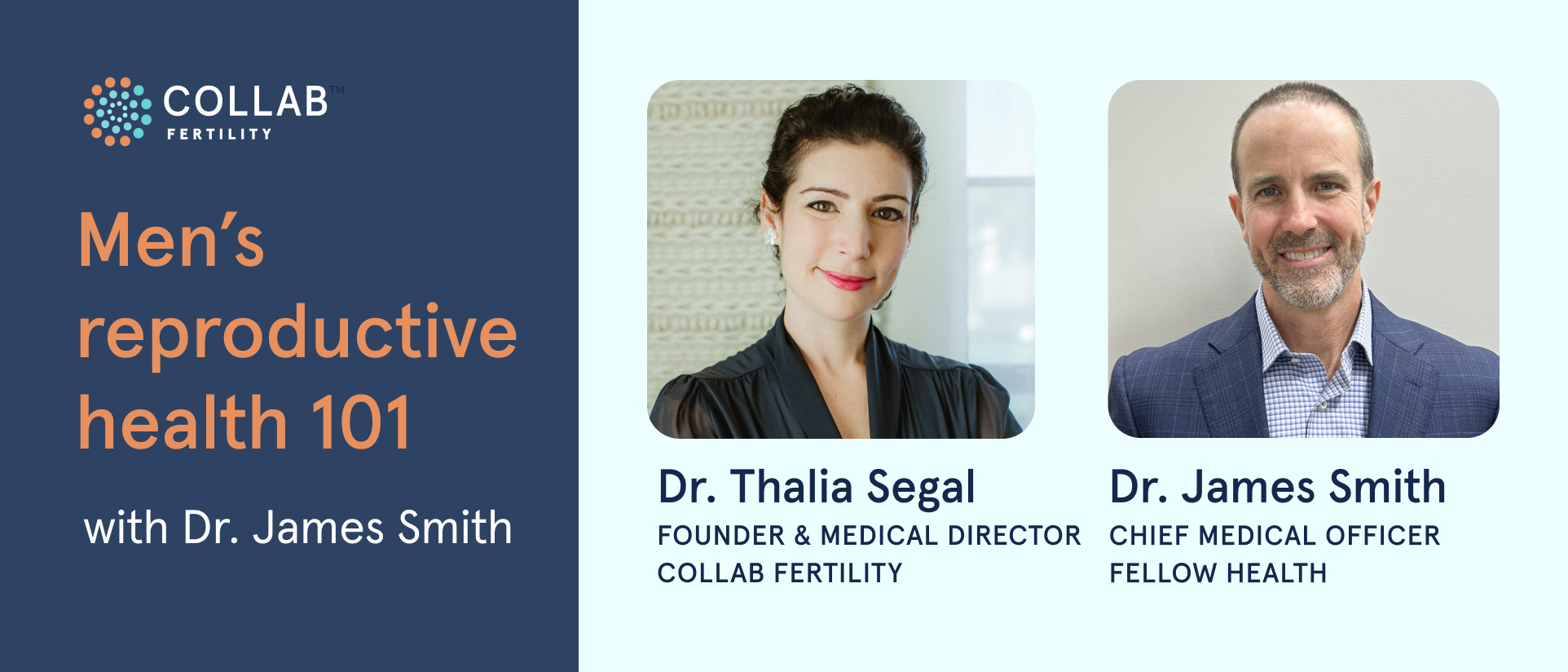
Men’s reproductive health 101: Dr. James Smith answers common questions about male fertility
